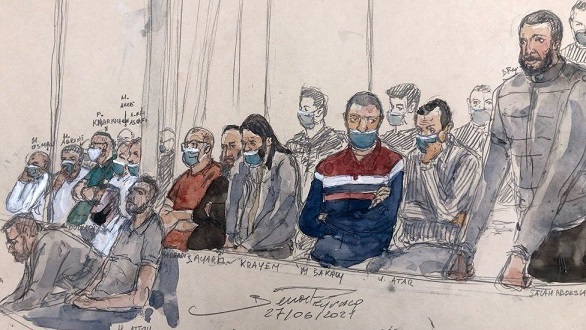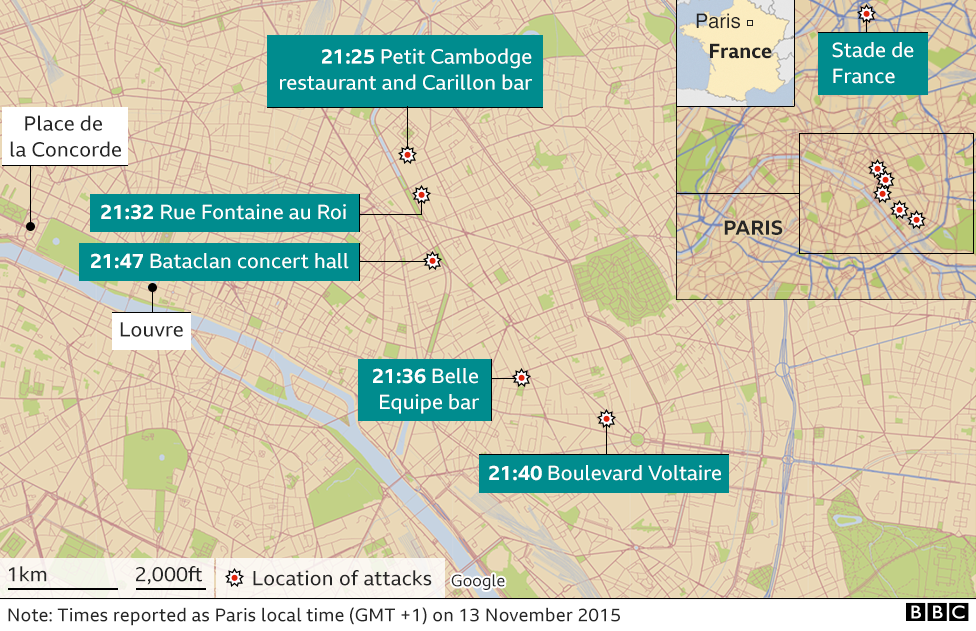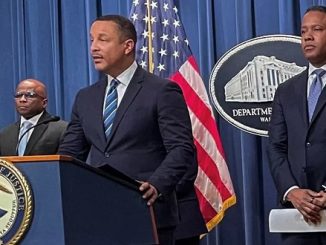
The only surviving attacker from the group that carried out the November 2015 Paris attacks has been found guilty of terrorism and murder charges.
Salah Abdeslam received a rare full-life sentence for his role in the gun and bomb attacks that killed 130 people.
The court also convicted 19 other men involved, six of whom are believed to be dead.
The trial – the biggest in modern French history – began last September.
For more than nine months, victims, journalists, and the families of the dead lined up outside the specially-built courtroom in Paris to piece together the story of the worst attack in France since World War Two.
The attacks across bars, restaurants, the national football stadium and Bataclan music venue on 13 November 2015 saw hundreds injured alongside those killed.
At the beginning of the trial Abedslam was defiant, describing himself as a “soldier” of the so-called Islamic State group.
But he later apologised to the victims, telling the court in his closing remarks that he was “not a murderer, or a killer”, and that to convict him of murder would be “an injustice”.
He also claimed during the trial that he decided not to detonate his suicide vest on the night of the attack and disposed of it in a Paris suburb.
However, the court accepted evidence that the suicide vest was defective, and therefore it did not believe that Abdeslam had experienced a last-minute change of heart.
His full-life sentence means there is only a small chance of parole after 30 years. It is the most severe penalty for criminals in France and is rarely handed down by the country’s courts.
One survivor of the 2015 attack, Arthur Dénouveaux, said it was fair even if it doesn’t bring complete closure for the victims.
“It will help us,” he told Reuters news agency. “When things like [these attacks] happen, you can’t have reparation but you can have justice. It was justice for sure, but it’s not healing everything.”
Gerard Chemla, a lawyer representing the victims, said the verdict would help to turn the page for his clients.
“The sentences handed down are not excessive, they are adapted to both the facts and to those who committed them,” he said.
Olivier Fischer, who survived the attack on Le Carillon Cafe, told journalists outside the court that he was “extremely satisfied”.
“It’s a very clear message addressed to all people who are tempted by the experience of radical Islamism,” he was reported by Reuters as saying.
The father of one of the victims of the Bataclan attack, Philippe Duperron, said justice had been delivered – not in the length of the sentences – but in the process of holding the trial itself.
“The possibility given to the victims to express themselves in this court and let out their pain and their suffering” was justice, he said.
Further convictions
The court handed down prison terms to 19 others convicted for their roles, ranging from two years to Abdeslam’s full-life sentence. They include:
- Mohamed Abrini, 37, who admitted to driving some of the Paris attackers to the capital, was sentenced to life in prison with a minimum of 22 years spent behind bars.
- Mohamed Bakkali, a Belgian-Moroccan coordinator, was sentenced to 30 years in jail for playing a “key role in the logistics of the attacks”. He was accused of renting hideouts in Brussels to house the attackers.
- Swedish citizen Osama Krayem and Tunisian Sofien Ayari were also both sentenced to 30 years in jail for planning a separate attack on Amsterdam airport as part of the same cell.
- Muhammad Usman and Adel Haddadi were sentenced to 18 years imprisonment with two-thirds of that spent behind bars.
- Six other defendants believed to have died in the attacks were tried in their absence.
Where Paris attacks took place

Source: bbc.co.uk






Be the first to comment